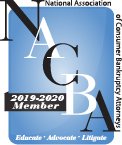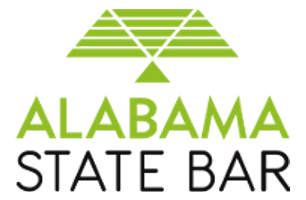The instinct to record a call from a debt collector is a good one.
Recordings of telephone conversations with debt collectors have in many cases provided a sound basis for a Federal Fair Debt Collection Practices Act (FDCPA) lawsuit.
However, when a client or potential client asks a bankruptcy attorney in Alabama whether he or she should record such calls, the answer is—it depends.
The answer depends not only on the location of the person recording the call but also the location of the person placing the call.
Each state in the U.S. has its own so-called wiretapping laws.
These laws aim to protect the sanctity of electronic communications in a variety of mediums, not least telephonic communications.
Thus, the laws of each state will differ with regard to the question of whether a phone-call can legally be recorded and, if it can, whether or not each party to the phone conversation needs to be aware of and consent to the recording.
States which require that both parties be aware of the recording are known as Two-Party States.
Other states, such as Alabama, only require that one party to the call be aware of and consent to the recording.
These are known as One-Party States.
It is rare that you will know from which state a debt collector is phoning.
Imagine that you are on a telephone call with your neighbor, who is in the process of confessing to the theft of another neighbor’s car.
Out of loyalty to the other neighbor, you might want to record that.
In Alabama, you can do that without telling your thieving neighbor that you are doing so.
However, if you’re calling your neighbor to plan a secret rendezvous at a romantic bed and breakfast, your wife, listening in from around the corner, might also want to record that phone-call.
It would be illegal for her to do that. She is not a party to the call and cannot consent to the recording.
What if your neighbor, in order to escape the shame of your romantic entanglement, has moved to California—a Two-Party State?
You could not then record the call yourself without the knowledge and consent of your neighbor, the new Californian.
As to the debt collectors, what if they are calling from a Two-Party State but are spoofing an Alabama phone-number?
In other words, whether or not it is legal to record a phone-call can be a very muddy question. In legal terms, this is what is known as a Choice of Law question.
A Choice of Law question is the legal analysis of which state’s law applies to a given question (or state versus Federal law).
When a client or potential asks our bankruptcy attorneys whether or not a debt collector’s phone call should be recorded, we do not necessarily know all of the facts necessary to complete that Choice of Law analysis.
The best course of action is to do what the debt collectors themselves do.
As soon as you answer the phone, the debt collectors disclose that they are calling in an effort to collect the debt and that the call is being recorded. At that point, your continued participation in any conversation that follows constitutes consent to the recording.
What’s good for the gander is good for the goose.
Before you say anything to the debt collector, the safest course of action when you want to record the call is to let the caller know that you are recording the call and that, in continuing, they are likewise consenting to the recording.
Will that affect the way that the debt collector speaks to you? Probably not.
Is that individual debt collector going to believe that you’re really recording, or care? Probably not.
Do recording of debt collectors illegally threatening to have people arrested for owing money or claiming that they work for “the court” when they do not make their way into Federal courtrooms in Fair Debt Collection Practices Act lawsuits?
You bet they do.
Regardless, for your own protection, full disclosure up front of the recording is the safest course of action for you.
The criminal penalties for violation of state or Federal wiretapping laws are far more severe than Fair Debt Collection Practice Act violations.
If you’re having debt-related issues, contact us to discuss your options.





